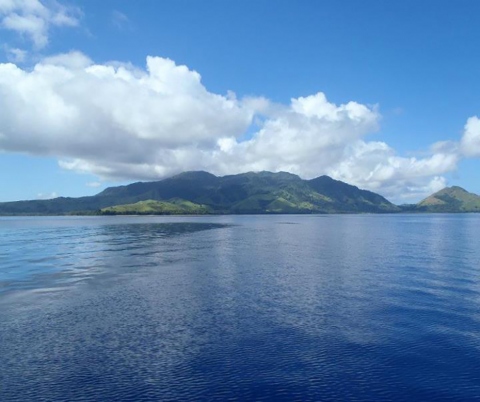Ocean Evidence Gap Map (2021-2022)
We are living through an era of rapid social and environmental change, particularly for the world’s oceans. This rate of change is seemingly matched by the generation of information (and misinformation) regarding potential solutions to achieve sustainability changes across scales.
Evidence synthesis is a powerful tool to draw insights from multiple sources to guide evidence-based decision-making and identify areas where more targeted research is needed. Nonetheless, traditional approaches to synthesize evidence are inadequate to meet the needs of today’s end-users and newer techniques are often resource-intensive and siloed. To support ocean conservation science and practice, there is a need for resource-efficient synthesis approaches that are accurate, accessible and reproducible.
This project drew on a network of synthesis experts and end-users from scientific, philanthropic and implementing organizations to assess the benefits and challenges of using evidence and evidence synthesis in marine conservation. Additionally, a diverse team of students from across the university were trained in evidence synthesis methods and are working to assemble a dataset on social and ecological outcomes from conservation in tropical marine ecosystems. Both the insights from the experts as well as results from the dataset are being used to develop a scientific paper. This paper will highlight the benefits and gaps of evidence concerning conservation impacts in tropical marine ecosystems.
The project team also advanced research on the efficiency, performance and usability of existing tools and approaches for evidence synthesis. Here team members worked to identify ways to facilitate integration of a diverse array of open-source tools and approaches for progressing cost-effective evidence synthesis and potential state-of-the-art solutions. The goal is to develop an “evidence pipeline”, an integrated assemblage of efficient and accessible resources to support future synthesis research in various sustainability fields in collaboration with practitioners and policymakers.
Learn more about this project team by viewing the team's video.
Timing
Summer 2021 – Summer 2022
Team Outputs
Suite of integrated cost-effective tools and approaches for evidence synthesis
Website with interactive platform for sharing updated evidence map results
See related teams, Marine Conservation Evidence and Synthesis (2022-2023) and Ocean Evidence Gap Map (2020-2021).
Image: Fiji Marine Conservation, by Frontierofficial, licensed under CC BY 2.0

Team Leaders
- Lisa Campbell, Nicholas School of the Environment-Marine Science and Conservation
- David Gill, Nicholas School of the Environment-Marine Science and Conservation
- Morgan Rudd, Nicholas School of the Environment-Marine Science and Conservation
/graduate Team Members
-
Michelle Jones, Liberal Studies-AM
/undergraduate Team Members
-
Ian Bailey, Economics (BS)
-
Julien Mermelstein, Political Science (AB)
-
Madena Mustafa, Environmental Sci/Policy (AB)
-
Yunhong Shan, Computer Science (BS)
-
Dennis Xu, Computer Science (BS)
-
Erin Yu, Environmental Sci/Policy (AB)
/yfaculty/staff Team Members
-
Brian Silliman, Nicholas School of the Environment-Marine Science and Conservation
/zcommunity Team Members
-
Gabby Ahmadia, World Wildlife Fund-US
-
Samantha Cheng, World Wildlife Fund
